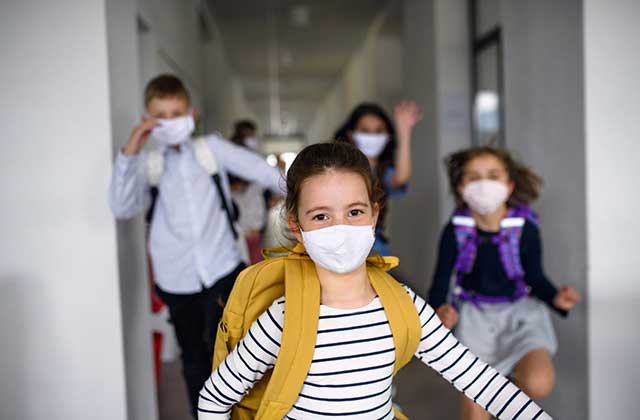Back to School Preparations to Protect Your Child From COVID-19

As schools are re-opening this September, one of the most stressful challenges any parent in Canada must manage is how to protect your kid from getting infected with COVID-19. Are social protocols going to be strictly implemented? Will the children’s room be properly ventilated? Are schools going to make sure that the door handles are frequently disinfected? These are just a few questions running around any mother or father’s mind.
But as much as we would want out kinds to stay within our reach inside our homes, they need to go to school. Schools are more than just a place for academics for children and teens. Besides learning how to read, write, and count, children can develop their emotional and social skills in schools by interacting with other children. It is a place where they get to taste a part of what we call the society or community.
The question remains though: Are the kids really safe to go back to school?
Government authorities have given a go signal for the young ones to return to their places of learning. However, this does not mean that you, as a parent, would not do anything to protect your child on your own. Here is some back to school preparations that you can do to safeguard your kid against the threat of the global pandemic:
- Train your child to practice personal preventive measures.
By this time, the whole family should know the different health protocols recommended by the government and health authorities. This is the moment when your child has to do this on his or her own. Make sure that your kid knows the different preventive measures by heart. The most important things that you need to teach your child are the following:
- Using of alcohol and sanitizer. Orient your children about the proper use of alcohol or sanitizer. These items are crucial in sanitizing the hands. Their hands should be sanitized every time they touch knobs or handles in schools and public places to avoid transmission of germs. Your child must have a small container of alcohol in his or her pocket or conveniently attached to his or her bag.
- Wearing of a face mask. Face masks protect you from being exposed directly to droplets, one of the modes of transmission of the novel coronavirus. Kids must be instructed that they should wear masks in public places especially when they are facing a lot of people or when they are talking to someone within a close distance. Kids must also avoid touching the outer part of the mask. If they accidentally do, instruct them to sanitize their hands immediately.
- Impress the importance of physical distancing to your kid.
The children must know that they should keep at least three to six feet away from other people, including their teachers and friends at school. Tell your child to step away from groups or areas that are not following the physical distancing protocol. He or she must also report to you if the school or the teacher is not strict in following these health rules.
- In the meantime, pack your child’s lunch in disposable brown bag containers.
The children need to eat nutritious foods to boost their immunity. But to protect your household from contracting COVID-19, you must avoid bringing possibly contaminated items back to our homes. Try to stock your pantry with brown take-out bags, take out boxes, and biodegradable plastics and utensils. You can prepare your child’s food and put it in biodegradable disposable containers. Let your child just throw the whole lot away after eating.
- Let your kid shower when he or she gets home.
Whenever your child returns from school, get him or her ready for a bath. Let him go straight to the bathroom to get undressed and to have a shower. His used clothes must be separated into another container and sprayed with Lysol. You can isolate the clothes and just get them once you are ready to do the laundry.
- Do not let the child go to school if he or she is sick.
You must also do your part to prevent the spread of infection. If your child has a cough, itchy throat, stuffed nose, or is sick with fever it is best to let him or her stay at home to protect not only your child but also other children. Inform his or her teacher when this happens so that you can be advised if your child can still receive notes or make-up for missed exams and quizzes while he or she is ill. It is also best if you can get your kid checked. If you cannot go out of the house or visit a walk-in clinic Brantford, consult an online doctor instead so that your child can get treated at home.
As a parent, it is only natural that you feel the need to protect your kid. However, for all of these things to be effective, let the child understand why he or she needs to do all these things.
